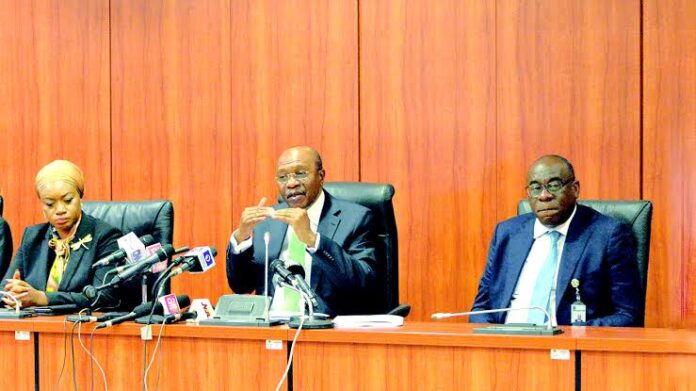The Central Bank of Nigeria (CBN) on Tuesday, May 24 announced that it’s Monetary Policy Committee (MPC) unanimously voted to raise the Monetary Policy Rate (MPR) – interest rate to 13 per cent, the move by the apex bank according to a financial analyst, Oluwafemi Osinubi, a Portfolio Manager with FSDH Asset Management Limited, is unnecessary amid the country’s fragile economic growth.
Mr Osinubi in a chat with Neptune Prime on Wednesday, May 25 said the drastic sharp increase of the rate would have a negative impact on the lives of the citizens (consumers) as producers in the manufacturing sector would pass the extra cost of borrowing on the former.
READ ALSO: CBN raises interest rate to 13%
While countering the move by the MPC, the analyst said “a 50basis points movement” could have been preferable if it is bent on increasing the rate at all.
“Inflation might be increasing but not at a level that appear threatening. We have had periods when inflation rose sharply to 17 per cent and MPC did nothing… Moreover, the driver of this creeping up inflation is more of cost push than demand pull hence, making the hike in MPR highly unnecessary because this would further expand the cost of borrowing for real sector company, the analyst said.
“However, I had expected – if anything was to be done at all – a 50basis points movement. At least let it be gradual to extract the demand pull side of the inflation – which was anyways caused by the huge amount released by CBN during COVID-19 period as monies which were meant for agriculture, some, were expended on consumption while others experienced insecurity at their farms.
“So, the drastic and sharp increase of the MPR would only negatively impact citizens lives as producers pass on the extra cost of borrowing to them. Hence, the cost push extract of the inflation is further strengthened.”
In advanced economies, drivers of growth rest on the Small Medium-sized Enterprises (SMEs).
When asked how would SME owners who depend largely on the banks’ credit to survive amid the increase of the interest rate, the analyst in his response said, “No doubt, SMEs would suffer so much as cost of expanding their businesses will become more expensive hence, curbing economic growth as production shrinks, and new orders from consumers moderates amid lower disposable income. Only the super rich who has unutilized funds would benefit – hence, the gap between the rich and the poor is further widened.”
The commercial banks and other lending institutions will be affected in the current regime as they will be forced to ramp up their rates to borrowers in the coming days.
“Worthy of note is that, the hike in policy rate will directly hit the banks because, the cost of accessing credit from the apex by the DMOs has gone up to 14 per cent from 12.50 per cent amid asymmetric corridor of +1 per cent. Therefore, banks wouldn’t wait a second before repricing their risk asset higher for the SMEs, who are suppose to be the major economic growth drivers.
“I fear the fragile growth would be stiffled and the consequences which would follow might be more devastating.
“Meanwhile, argument around electioneering spending which is expected to be high in H2 2022, and the need to reduce the excessive money in circulation could still be achieved by increasing Open Market Operations (OMO) and coupon rates rather than MPR,” the analyst added.
Follow the Neptune Prime channel on WhatsApp: https://whatsapp.com/channel/0029Va74ZvU2v1IqKByXoX3d
Do you have breaking news, interview request, opinion, suggestion, or want your event covered? Email us at neptuneprime2233@gmail.com


